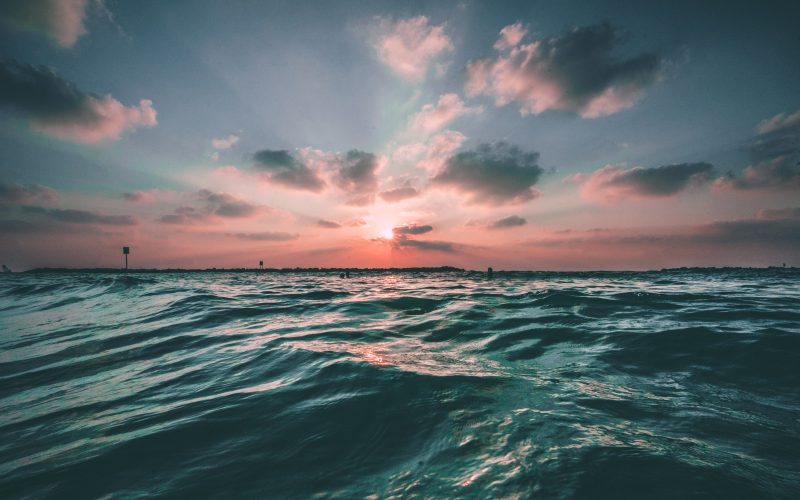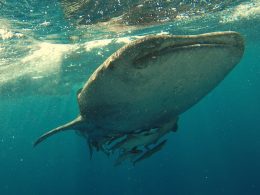The ocean covers more than 70% of our planet’s surface and plays a vital role in supporting life on Earth. Unfortunately, years of neglect and exploitation have taken their toll, and the health of the ocean is in dire straits. To reverse this trend, we need passionate experts at the helm who can steer us towards sustainable practices that protect marine ecosystems for generations to come. In this blog post, we examine why scientists are critical players in ocean conservation efforts and explore what sets them apart from other stakeholders in terms of knowledge, skills, and expertise. Join us on this journey as we delve into the importance of scientific expertise in saving our oceans!
The current state of ocean conservation
The current state of ocean conservation is a cause for concern. Despite decades of efforts to protect marine ecosystems, the world’s oceans face multiple threats that continue to undermine their health and resilience. Overfishing, pollution, climate change, and habitat destruction are among the most pressing challenges that need urgent attention.
Overfishing has decimated many fish populations around the world and disrupted entire marine food webs. Industrial fishing practices have led to massive bycatches of non-targeted species such as turtles, sharks, dolphins, and seabirds.
Pollution from land-based sources such as agricultural runoff, sewage discharge, and plastic waste also poses significant risks to ocean life. Chemical contaminants like pesticides and heavy metals can accumulate in the tissues of fish and other organisms along with toxic plastics killing millions of animals each year.
Climate change is causing sea levels to rise; it is warming up our oceans leading them towards dead zones which threaten delicate coral reef systems—the loss of these reefs would be catastrophic for countless marine creatures who rely on them for shelter or food.
In conclusion: The current state of ocean conservation calls for immediate action from all actors involved–from governments enacting stricter regulations down through individuals making lifestyle changes at home–in order to preserve this crucial resource before it’s too late.
The importance of scientific expertise in ocean conservation
Ocean conservation is a complex issue that requires the input of experts from various fields. However, scientific expertise plays a crucial role in ensuring the success of any ocean conservation efforts. Scientists bring with them an understanding of how marine ecosystems function and are able to identify potential threats to these systems. This knowledge is essential in creating effective strategies for preserving our oceans.
Scientific expertise provides an evidence-based approach to ocean conservation, which supports informed decision-making. Scientists can collect data on various aspects of marine life such as population sizes, migration patterns, and the impact of human activities on marine environments. These findings are then used by policymakers and other stakeholders to make informed decisions regarding fishing practices, shipping routes, and pollution control measures.
Scientists also help develop new technologies that aid in ocean conservation efforts. For instance, scientists have developed sensors capable of tracking pollutants and monitoring changes in temperature or acidity levels within the ocean environment. Such tools enable us to detect issues early enough before they cause irreversible damage.
Having scientists at the helm of ocean conservation ensures that solutions are grounded in science rather than politics or personal interests. The scientific community strives towards finding long-term solutions based on empirical data gathered through rigorous research processes.
Scientific expertise is vital when it comes to addressing challenges facing our oceans today such as global warming and overfishing among others. We must continue supporting their work by investing more resources into research programs aimed at protecting our oceans for future generations
The benefits of having scientists at the helm of ocean conservation
One of the biggest benefits of having scientists at the helm of ocean conservation is their ability to understand and analyze complex data. Scientists are highly skilled in interpreting scientific findings, identifying patterns, and developing evidence-based strategies for protecting our oceans.
Moreover, scientists bring a unique perspective to ocean conservation. They approach problems with an open mind and are not afraid to challenge traditional ways of thinking. This creative mindset allows them to develop innovative solutions that can help us better understand the ocean’s complex ecosystems.
Another benefit is that scientists have access to cutting-edge technology that can be used to monitor changes in our oceans over time. From sophisticated sensors that measure temperature and salinity, to underwater drones equipped with cameras and sonar systems, these tools allow experts to collect real-time data on everything from fish populations to sea level rise.
Additionally, when it comes time for policy decisions about how best to manage our oceans’ resources or protect endangered species, we need people who are well-versed in science sitting at the table. Scientists can provide important insights into which policies will be most effective based on their knowledge of marine biology, chemistry or ecology.
Having scientists leading efforts in ocean conservation brings immense value by providing us sound scientific advice backed up with empirical research while bringing new perspectives through creativity & innovation!
The challenges faced by scientists in ocean conservation
The challenges faced by scientists in ocean conservation are diverse and complex. One of the major challenges is the lack of funding for research and monitoring programs necessary to understand the state of marine ecosystems fully.
Another challenge is communicating scientific findings to policymakers, stakeholders, and the general public effectively. It can be challenging to convey complex scientific concepts in a way that is understandable and actionable.
Furthermore, scientists must navigate competing interests among different groups involved in ocean conservation efforts. Balancing economic development with environmental protection can be difficult when there are conflicting objectives.
Scientists also face logistical challenges such as access to remote areas and dangerous conditions at sea while conducting fieldwork. Working on a specific issue may require long-term commitments that span years or even decades.
Political interference can pose a significant challenge for scientists who aim to provide objective information without bias or external influence.
These challenges highlight the need for greater support for ocean science research and increased collaboration between researchers, policymakers, industry representatives, and other stakeholders involved in conservation efforts.
The future of ocean conservation
As our planet’s oceans face unprecedented challenges, it is clear that we need scientists at the helm of ocean conservation efforts. Scientific expertise is crucial in understanding the complex systems at play and developing effective solutions to protect and preserve our oceans.
Despite facing numerous challenges, including funding constraints and political obstacles, scientists continue to work tirelessly towards a better future for our oceans. By collaborating with policymakers, stakeholders, and other experts across disciplines, they are driving progress in marine conservation.
Looking ahead, it will be essential to prioritize scientific research and expertise even further as we confront ongoing threats such as climate change, overfishing, pollution and habitat destruction. Only by working together can we ensure that our oceans remain healthy for generations to come.
Ultimately, the fate of the world’s marine ecosystems rests in our hands. With continued support for scientific investigation into ocean conservation issues coupled with innovative policy-making backed up by sound science knowledge – there is hope yet for a brighter future where humanity coexists more harmoniously with nature than ever before!











